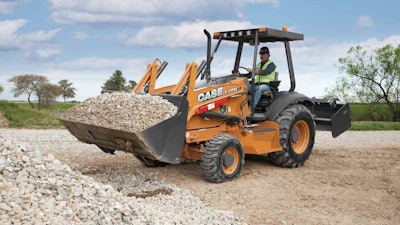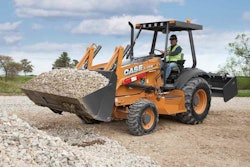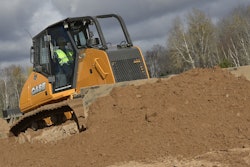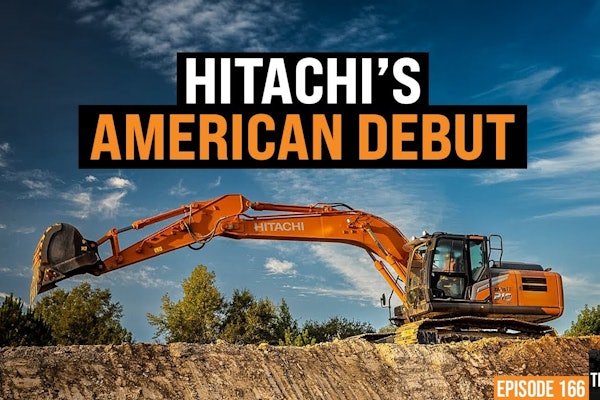
Two days after expiration of the previous six-year labor agreement, United Auto Workers at CNH Industrial plants in Burlington, Iowa, and Racine, Wisconsin, have gone on strike. CNH is the manufacturer of Case and New Holland construction equipment.
The current six-year labor agreement at both the Burlington (UAW Local 807) and Racine (UAW Local 180) facilities expired at midnight on April 30. The agreement covers about 1,100 hourly employees. (For the latest updates on the strike, check equipmentworld.com.)
Negotiations on a new labor agreement at the two facilities began April 4, according to Rebecca Fabian, CNH Industrial North American communications manager. At the time, company officials were expressing some optimism in reaching a fair, equitable and competitive agreement for the workers. She said CNH officials are disappointed that the parties were unable to reach an agreement and that a strike has been called.
"We recognize the union’s decision creates high anxiety among our represented employees in Burlington and Racine, as well as our other employees, our customers, and our community," Fabian states in a release from the company. "We remain committed to reaching an agreement, and we are working to resolve this issue. We will continue to negotiate in good faith and trust that the union will do the same.
Following expiration of the prior agreement on April 30, UAW bargainers agreed to extend the current agreement with an hour-by-hour basis for the two facilities. On May 2, the parties set a deadline of noon CST. Upon reaching the deadline with no agreement in place that met the demands and needs of the workers, both plants went on strike.
“Our members at CNHi strike for the ability to earn a decent living, retire with dignity and establish fair work rules,” said Chuck Browning, vice president and director of the UAW’s Agricultural Implement Department. “We stay committed to bargaining until our members goals are achieved.”
The strike authorization vote was held on April 10. Facebook posts and reports on Farm Equipment indicate that more than 95% of the membership voted in favor of striking, just six days after negotiations had reportedly begun. The vote itself was not for a strike but to authorize one should it be deemed necessary.
“Our members are working in solidarity and ready to hold out and fight for a contract they believe meets their needs,” said Ron McInroy, director of UAW Region 4. “Our members and their families appreciate the community support they have already gotten. Strikes are never easy, but the fight for better working conditions at work is worth it.”
UAW workers at the CNH Industrial facilities and those at Caterpillar plants – whose contract runs out in 2023 – are hoping to make gains like that which occurred for the John Deere workers.
Deere & Company workers went on strike for five weeks in October 2021 before agreeing to a new six-year agreement which included an $8,500 signing bonus, 20% increase in wages over the lifetime of the contract with 10% of that increase occurring this year, a return to cost-of-living adjustments and three 3% lump-sum payments. Union members also received enhanced retirement options and additional bumps in Deere's incentive compensation plan.
UAW President Ray Curry said the almost one million UAW retirees and active members stand in solidarity with the striking workers at CNHi.
“All UAW members are united with UAW CNHi workers,” Curry said. “UAW CNHi members have worked through the pandemic after the company deemed them essential, to produce the equipment that feeds America, builds America, and powers the American economy. They are a strong united union voice on the picket line they can make a difference for working families here and throughout the country.”
The last strike at the two CNH facilities occurred nearly 20 years ago in 2004. At the time, a 72-month contract between CNH Industrial and plants in Iowa, Wisconsin, Minnesota, and Illinois expired on May 2, 2004. Although workers overwhelmingly rejected a “final offer” from the company on May 8, no strike was called until November 2004.
After 19 days, UAW workers agreed to end the strike after CNH reportedly said talks were at an impasse and appeared to be willing to continue to negotiate.
However, CNH Industrial locked out the workers, while continuing operations using a combination of temporary replacement workers and salaried employees. The lockout lasted an additional 17 weeks and concluded with a new labor agreement that was only slightly adjusted from the company’s original final offer.
Unlike 2004, the UAW may be in a better position to push for favorable changes due to the current labor market and ongoing demand for product.
In Racine, the UAW workers produce Case IH and New Holland Agriculture farm equipment. On the construction side of CNH’s business, the Burlington facility produces backhoes, rough-terrain forklifts, and dozers.
However, in July 2021, according to The Hawk Eye newspaper, CNH Industrial was having ongoing discussions with the local UAW 807 in Burlington about moving its Case M Series dozer production from Burlington to an undisclosed location outside of the U.S. The dozer line had been added with a $24 million expansion at the plant in 2015 when CNH closed its Calhoun, Georgia plant. Since 2021, the plant continues to produce the Case dozers and no subsequent information has been released on any movement of that line. It is not clear if any further discussion of moving the line will be part of the current labor negotiations.













